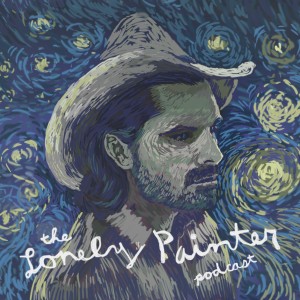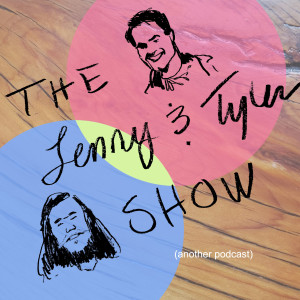
I think the common reading of the new Joker film is, “Look how society grinds down a person and eventually causes some to snap.” But the better question is - why do some snap and others don’t? It should be noted that when Arthur kills the 3 men who attack him on the subway, he does it in self defense and rage. It’s only later that he begins to buy into the larger poetic causal narrative that others concoct in an attempt to make sense of the killings. In this sense what creates the Joker is not the contingent circumstances of his life, but rather his interpolation into an ideological structure or meta narrative. In the same way Hitler had lots of bad things happen to him and we say, “If only he had not been rejected from art school…” "If only he had a better upbringing…" and so on. But we could make that argument for anyone -- everyone faces hardships and rejection. It was rather Hitler’s fascination with a poetic vision of a non antagonistic whole, unified society that drove him. That vision (of a unified society, obviously not his other goals) should inspire us as well -- we should strive to bring about a future in which the poor are not forgotten and overlooked, but we should always be on the lookout for rationalizing the existence of problems within our society as the effect of a cause that stems from a particular people group as Nazis did with the Jews. We must be careful not to scapegoat. Our fight is not against flesh and blood but against powers and principalities.
Whether in this presidency or the last, we easily think, “If only this administration were out, then we could set things straight.” But what if the antagonism is not contingent to the current “bad actors” but rather is constitutive of human life itself? Again my point is, we shouldn’t merely critique the person in power (though we should call a spade a spade, we should oppose oppressive speech and acts, and there are better and worse ways of governing), but rather we should each think hard about the underlying narratives that drive us. The stories we tell ourselves about ourselves are usually not true.
As Slavoj Zizek contends: it's false to think that without God, bad people would not do good things. On the contrary, it's actually only something like God or some other poetic meta narrative that can make good people do bad things. This is what we saw on 9/11. If you perceive yourself as an instrument of God, then of course you can employ whatever means necessary to reach the end you feel called towards. This is what Kierkegaard referred to as the teleological suspension of the ethical -- that God's plan trumps human morality. In other words, it's possible that God could call you to do something that you would never be able to reconcile with humanity's notion of right and wrong, like being called to sacrifice one's own son. Therefore a leap of faith is required.
Personally, I’m more and more convinced that the underlying temptation and super-egoic imperative for each of us is: To have it all. We run ourselves ragged fearing we'll miss out. Fearing we'll be seen as less than. Fearing we'll let others down. We see this temptation (to have it all) in the biblical garden story. We desire to be like God. That is: we desire a non antagonistic existence. We desire to lack nothing.
I pray that we might each take a second to stop, breathe, and experience grace for who we already are -- lacking, imperfect beings -- remembering that Jesus himself did not count equality with God as something to be grasped. We need communities in which we can lay bare our struggles and imperfections with others. I'd argue that Story Night is one such community. AA is another.
My fear is this: now that this Joker movie exists -- if poorly understood -- it may become the poetic narrative which downtrodden citizens may find themselves in the grips of and will use to justify acts of violence.
We too must be very careful in the way we see ourselves as instruments of some higher vision. Ultimately, I am for giving one’s self to a higher goal, but we must take extremely seriously what that higher goal is.
We should search earnestly, just as Soren Kierkegaard did, for, "the idea for which I can live and die." And if we find it, pursue it with fear and trembling -- seeking justice, loving truth, and walking humbly with our G(g)od.
More Episodes
 2020-11-17
2020-11-17
 106
106
 2020-09-29
2020-09-29
 158
158
 2020-09-15
2020-09-15
 108
108
 2020-09-07
2020-09-07
 47
47
 2020-09-03
2020-09-03
 92
92
 2020-08-26
2020-08-26
 91
91
 2020-08-19
2020-08-19
 106
106
 2020-08-03
2020-08-03
 111
111
 2020-07-29
2020-07-29
 107
107
 2020-07-20
2020-07-20
 97
97
 2020-07-13
2020-07-13
 112
112
 2020-07-08
2020-07-08
 112
112
 2020-06-30
2020-06-30
 131
131
 2020-06-22
2020-06-22
 149
149
 2020-06-15
2020-06-15
 119
119
 2020-06-08
2020-06-08
 113
113
 2020-06-01
2020-06-01
 116
116
 2020-05-29
2020-05-29
 116
116
 2020-05-18
2020-05-18
 140
140
 2020-05-11
2020-05-11
 139
139
Create your
podcast in
minutes
- Full-featured podcast site
- Unlimited storage and bandwidth
- Comprehensive podcast stats
- Distribute to Apple Podcasts, Spotify, and more
- Make money with your podcast
It is Free
- Privacy Policy
- Cookie Policy
- Terms of Use
- Consent Preferences
- Copyright © 2015-2024 Podbean.com






